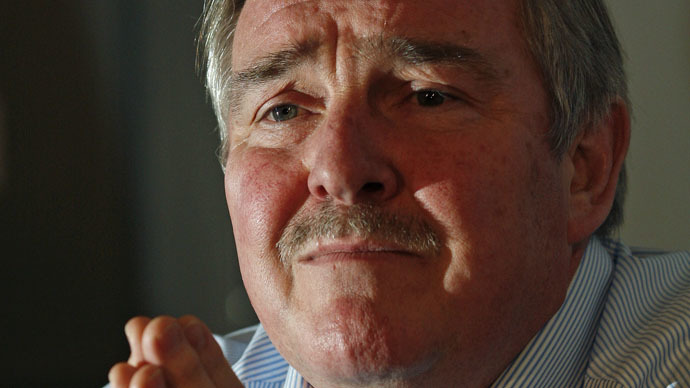Psychoactive substances ban ‘disastrous’ for scientific research – ex-drug adviser

A UK-wide ban on psychoactive substances will make medical research into Parkinson’s disease “very difficult,” a prominent drugs expert and former government advisor has warned.
The British government will introduce a bill during this Parliament to ban the sale of any substance capable of creating a psychoactive effect.
The new prohibition to counter so-called ‘legal highs’ will carry prison sentences of up to seven years if it becomes law, the government has said.
Former chief drug adviser to the government Professor David Nutt has warned the legislation will effectively outlaw medical research into Parkinson’s disease and safe alternatives to alcohol and cigarettes.
“It’s going to end brain research in this country. It will be disastrous. The ban on legal highs has been very destructive to research into Parkinson’s and into anti-smoking drugs,” said Nutt.
“For example, the only drug for Parkinson’s is a cathinone [a class of drugs, including mephedrone, banned in 2010]. We’ve already seen massive impediment to research of interesting compounds by current law.”
A blanket ban on anything that has a psychoactive effect is the most unscientific drivel. Exercise & sex have a psychoactive effect
— Will Black (@WillBlackWriter) May 29, 2015
Nutt is concerned it could make it almost impossible for scientists researching new medicines to buy chemicals from suppliers.
“If I want to work on a new treatment for Parkinson’s which is based on chemicals similar to Benzo Fury [a formerly legal high], then it will take me a year to get a license.”
“How are they going to exempt scientists? If I ring up a company selling compounds, how are they going to know I’m a scientist?”
Nutt said the ban on psychoactive substances is politically motivated, describing it as a “sop to the right wing.”
READ MORE: Psychedelic drugs should be legally reclassified, medical uses explored – academics
READ MORE: Medical marijuana falls short of easing symptoms of dementia – study
“It’s ridiculous, unnecessary and will do more harm because the more things that are on the black market, the more harm. We banned heroin and it’s still killing 1,200 people a year,” he added.
The ban threatens to stop Nutt’s own research into developing a safer alternative to alcohol, dubbed ‘alcosynth.’
Critics have slammed the bill for exercising a kind of hypocrisy which is typical of the so-called war on drugs.
The government’s proposal for the legislation explains the ban will cover “any substance intended for human consumption that is capable of producing a psychoactive effect.”
It then goes to list substances which are exempt from this ban, including alcohol, caffeine, food and drugs that are already illegal under the Misuse of Drugs Act 1971.
Politics.co.uk editor Ian Dunt raised concerns over the bill’s sweeping scope.
“Previously, everything was legal unless the government passed legislation outlawing it,” he wrote in a blog. “This is the opposite. It is the spilling of the legislative ink, so that it covers everything.”
Dunt attacked the bill as part of a new direction in the war against drugs where substances must be proved not to have a psychoactive effect before they can be made legal.
“That is the oh-so-sober suggestion of the drug warriors,” he wrote.
“They want to ban things which make the brain do things. It's basically a war on subjectivity. A child would know it was madness. Only a civil servant could think it was sound policy.”












